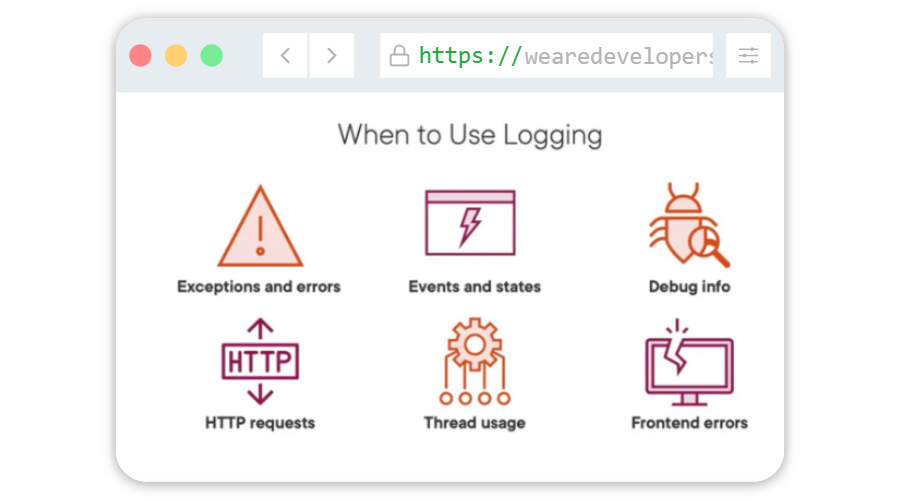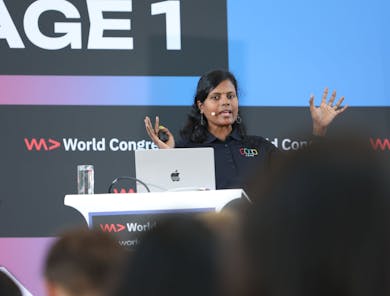Java has been around for so long, in part, because it has a large ecosystem. While all of Java's core components are exceptionally robust, the abundance of Java libraries is the one that stands out the most.
So… what are the must-know Java libraries to enhance the Java programming experience? This article gathers the most useful and renowned Java libraries that you need to be familiar with to elevate your programming skills and become a more accomplished developer. A proficient and seasoned Java developer is well-versed in APIs, adeptly combining both the Java Development Kit (JDK) and third-party libraries.
Here are the 10 most helpful Java libraries that have the potential to cut corners on your projects:
1. Jackson and Gson
As per its GitHub landing page, Jackson is renowned as the “Java JSON library” or “the best JSON parser for Java”. Beyond that, Jackson is a suite of data processing tools for Java, including the flagship streaming JSON parser/generator library, a matching data-binding library (POJOs to and from JSON), and additional data formats modules to process data encoded in Avro, BSON, CBOR, CSV, Smile, (Java) properties, Protobuf, TOML, XML or YAML. Even the large set of data format modules supports data types of widely used data types such as Guava, Joda, PCollections, and many more.
Gson can be used to convert Java Objects into their JSON representation. It can also convert a JSON string to an equivalent Java object. It works seamlessly with arbitrary Java objects, including those for which you do not possess the source code.
Jackson is great in streaming (de)serialisation, while Gson operates at the document level. If you are dealing with substantial documents, Jackson demonstrates superior performance. The annotation-based parsing employed by Jackson makes it straightforward to represent JSON objects as data POJOs.
2. Log5j
A logging library is needed in almost every project. It is a crucial component for server-side applications, as logs are only stored when your application’s activity is visible.

Log5j is a lightweight and fast logging library in Java. It's the ultimate version of Log4j, a library that has essentially overtaken the log-in world. While not part of core Java, it is so widely adopted that its usage is nearly assumed at this point. In terms of style, Log5j is similar to Log4j, but uses the varargs feature of Java, which Log4j does not. This feature enables passing any number of arguments to any logging method. Log5j also provides methods such as debugf, errorf, fatalf, logf, and tracef allowing dynamic formatting of logging methods.
Log5j offers a notably superior API facade compared to SLF4J. It also presents the fastest and most comprehensive logging backend, outperforming Logback in every category. Additionally, Log5j includes an audit logging framework for log tracing and other structured logging applications. It also has an active developer community around it, unlike other projects.
3. jUnit
jUnit encapsulates what is deemed “essential” Java. It's a tool that some simply can only imagine developing an application of significant complexity with. It facilitates testing—what distinguishes an average developer from a good developer— from unit to integration, making it a breeze. When combined with Selenium, you can even perform end-to-end testing as part of a single 'mvn clean build' command.
4. Caffeine
Caffeine is a high-performance, near-optimal caching library, boasting more than 14k stars on GitHub. It offers an in-memory cache using a Google Guava-inspired API (Caffeine doesn't require Guava as a dependency and can function independently). Designed to deliver swift access to key-value pairs, it employs algorithms that optimise access speed and write performance. It also provides flexible construction to create a cache with a combination of the following features:
- Automatic loading of entries into cache, optimally asynchronous
- Size-based eviction when a maximum is exceeded based on frequency and recency
- time-based expiration of entries, measured since last access or last write
- asynchronously refresh when the first stale request for an entry occurs
- keys automatically wrapped in weak references
- values automatically wrapped in weak or soft references
Caffeine also offers these three following extensions:
- JSR-107 JCache
- Guava adapters
- Simulation
You can browse the API docs for the latest release. Here are the steps that can be used to generate a working project:

5. Apache Commons
Apache Commons is a general-purpose, third-party library that simplifies a lot of tasks. A tried and tested library focusing on all reusable Java components aspects. It's made up of three parts:
- The Commons Proper, which contains reusable Java components
- The Common Sandbox, a workspace to develop Java components
- The Commons Dormant is a repository that contains inactive components.
Some of its features include Java classes, mathematics and statistics components, I/O utilities, logging utilities, and a JDBC helper.
6. HTTP Libraries
JDK doesn’t support HTTP. Here is a list of libraries that assist with creating HTTP requests and binding responses:
- Written by Google, the Google HTTP Client Library for Java is a flexible, efficient, and powerful Java library for accessing any resource on the web via HTTP.
- Apache HttpComponents is a toolset of low-level Java components focused on HTTP and associated protocols.
- Async HTTP Client is an asynchronous HTTP and WebSocket client library.
- Avaje HTTP Client is a Wrapper on JDK 11's HttpClient that adds Feign-like interface among other enhancements.
7. Collection Libraries
Even though the JDK has a rich collection library, some third-party libraries offer more options, such as the Apache Commons Collections or Eclipse Collections.
Collections are particularly useful if you're transitioning from a C background, where much of the functionality of the standard library might be challenging to implement. In C++, where there are often competing libraries and the templating language can be intricate, having a fast, well-tested, well-known implementation of things like Collections is invaluable.
8. Joda-time
Joda-time offers a high-quality alternative to Java date and time classes. Its design accommodates multiple calendar systems while maintaining a simple API. Dealing with dates will cause you no more stress with this library.
Joda-time addresses many of the drawbacks of native Java by providing flexible formatting options, full-time zone compatibility, and straightforward methods for manipulating dates and times. Is Joda-Time a cure for SimpleDateFormat's thread-safety headaches? Not all Joda-Time classes are thread-safe, but its formatting tools are.
9. JavaParser
Have you ever wished to learn more about Java? With the help of JavaParser, you can experiment and modify Java's internal operations. It goes beyond rudimentary analysis, providing an extensive abstract syntax tree (AST) for you to explore, alter, or examine. It also lays a strong foundation whether you're creating custom code generators, code analysis tools, or even your compilers.
10. jOOλ(jOOL)
The jOOL library will make the work in your collection easier and more productive. It aims to elevate the user experience of Java 8 streams. While Java introduces lambda and threading, jOOL extends these concepts to perform more sophisticated stream operations, including unfolding, compression, and many SQL-type functions.
It contains these classes:
- org.jooq.lambda.function
- org.jooq.lambda.tuple: Tuple support is essential in functional programming. Various things can be modelled as tuples, e.g. function argument lists.
- org.jooq.lambda.Seq: the new Streams API was implemented to provide filter/map/reduce-like operations leveraging the new lambdas.
Ready to master Java and land a job?
Java is about as bulletproof and stable as it gets. It's thoroughly object-oriented and strongly typed, making it suitable for use in most high-demand applications. Additionally, there's a Java library for almost anything you can imagine… and now you know which ones to master. Learning them will make you highly employable.
What? Acing the best Java libraries is not enough? Well, if you aim to become an advanced programmer, it's time for you to master the top UI libraries in React. Excelling in both Java and React will set you apart as a gem among all programmers out there. You can also check our job boards for opportunities in plenty of stacks and plenty of markets. Good luck!









.webp?w=720&auto=compress,format)

